I don’t need to tell you that 2020 was a year like no other. Our lives were completely uprooted and every aspect of society was hit and is still being hit by the pandemic. And now, at the start of 2021 we are in another lockdown.
Part of completing a PhD involves problem solving, being flexible and adapting plans to ever changing circumstances and that certainly has been the case for PhD students this year – with some students potentially not even having met their supervisors in person yet.
One of the major changes to impact PhD students across the world was that most of us in some capacity had to start working from home. If you were really lucky, you had space for a home office or even a desk. Days seemed to merge into one, with zoom meeting after zoom meeting after zoom meeting and sadly no experiments in sight.
The pandemic has not only pushed us to adapt to new ways of working but it has also pushed us to question and potentially change our relationship with our wellbeing.

If I’m honest, trying to write a blog about wellbeing has, ironically, stressed me out a little bit, but I’m glad I persevered. While it’s an important topic, I’ve personally also found writing it to be quite a cathartic exercise and it’s made me realise that I perhaps need to take my own advice sometimes as well!
One thing that really became apparent throughout the year was how much I relied on socialising for my own wellbeing. I can imagine, I was not alone in this – as 2020 has made all of us completely re-evaluate what we do for our wellbeing, as seeing friends, going out for brunch or having a pint at the pub was completely off the cards.
So how do you look after your wellbeing when you can’t socialise with others and when you work where you live? This is not an exhaustive list and I’m not saying these things will work for everyone. I’m a PhD student with no children so I understand that these may not be practical in different circumstances.
- Work-life Boundaries: make some
This is a difficult one when working from home. It’s easy for work to overrun because you’re working where you’re living but if you constantly work and don’t take time for yourself the chances of burnout are high! So, set yourself a start time and an end time – and try and stick to it. And remember to take small breaks often.
- Exercise each day
I’m not saying you should be doing a marathon everyday (that would be awful) but a little bit of movement really goes a long way. Go on a walk on your ‘lunch break’ or after your tea (dinner to anyone in the south of England). Walk around the living room/home office. Just move your body – you’ll feel the benefit.
- Do something you enjoy each day (that’s not work related)
Read, listen to music, a podcast, journal, cook a nice meal, watch a documentary. It doesn’t matter what it is, as long as it’s something you enjoy.
- Re-evaluate your expectations and always be kind to yourself
Setting expectations is important as a PhD student, as it can help us achieve important goals and milestones. However, expectations do have pitfalls – especially if we don’t meet them. I certainly have not met a number of expectations I set for myself in the past year, but I have re-evaluated them to ensure they are now realistic for the situation. This all comes under the idea of being kind to yourself: your productivity is not going to be the same as it was before…and that’s okay!
- Stay in touch with others……
One thing I found really difficult during the first lockdown was staying in touch with people – especially the lab. Zoom fatigue is indeed a real thing and the idea of ‘socialising’ over zoom just made me want to go to sleep. But I found it was really important to touch base with other lab members often – in order to feel that I was still part of an ‘academic community’. The same goes for staying in touch with friends and family – the idea of having to spend even more time on a screen is draining but a quick catch up with a friend or family member did make me feel more connected to other human beings afterwards.
- …..but avoid falling down a social media rabbit-hole!
It’s okay to turn off the news or take a break from academic twitter. Social media has become an integral part of not only where we get our news but also how we communicate our science to others. However, social media can also be very draining – and especially more draining during a pandemic. So, don’t feel bad for taking a hiatus. Academic twitter will still be there when you return.
- Learn how to say no
Learning to say no has been a big thing for me this year. Prior to this year I was pretty worried about saying no to opportunities in academia. However, this year has taught me that I literally cannot do it all. And this has become especially apparent since I’ve progressed into the second year of my PhD and started communicating my science more often. Saying no is a really important skill to learn – other opportunities will arise so don’t be afraid to say no to something if you know it’s going to be too much for you right now.
Most importantly, make sure to acknowledge your feelings: it’s fine to have days where you don’t feel like PHDing, but it’s always important to remember why you started and the impact that your work could potentially have!
Author
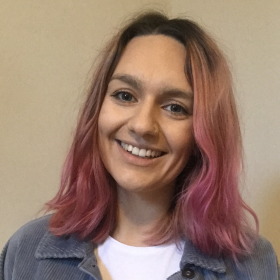
Beth Eyre
Beth Eyre is a 2nd year PhD Student at The University of Sheffield, researching Neurovascular and cognitive function in preclinical models of Alzheimer’s disease. Beth has a background in psychology, where she gained her degree from the University of Leeds. Inside and outside the lab, Beth loves sharing her science and we are delighted to have her contributing as a regular blogger with Dementia Researcher, sharing her work and discussing her career.
You can follow Beth on Twitter Follow @bethsbrainbites
What did you do have completing your clinical doctorate? Have you found the perfect role? Post a reply in the box below

 Print This Post
Print This Post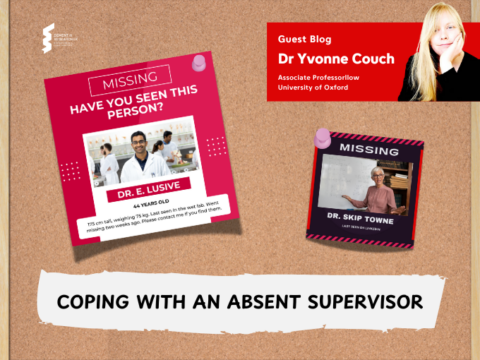
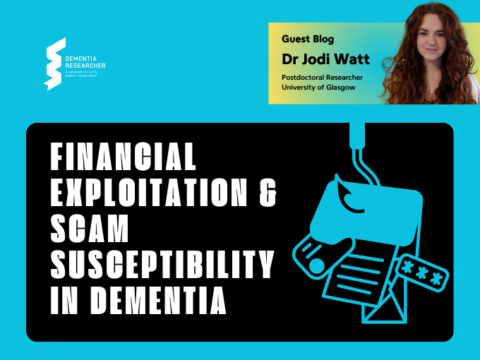
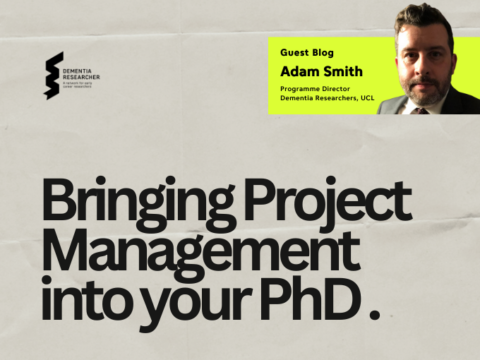


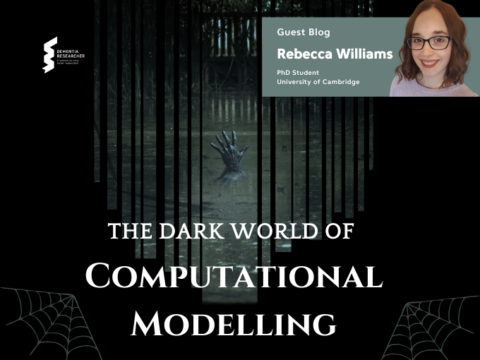
Great blog Beth, I would also add that I have found sleep important, and recognising FOMO and dealing with that! There are so many online events and things to attend right now, but that doesn’t mean everything is high quality and worthwhile – be selective, and bookmark the things you want to watch.